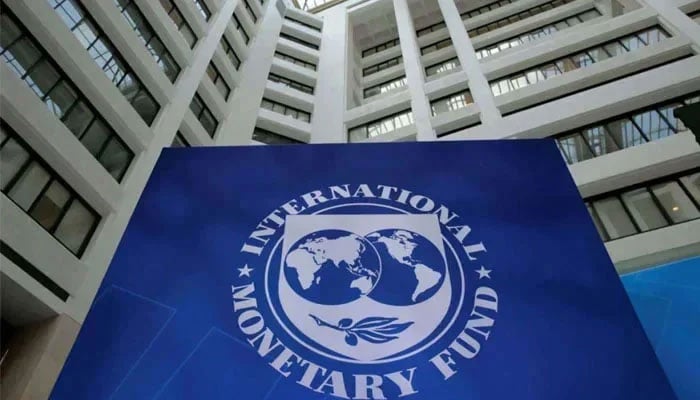IMF asks Pakistan to amend tax laws to avoid massive frauds
IMF asked Pakistan to introduce the General Anti-Avoidance Rule (GAAR) by amending Sales Tax Act 1990
ISLAMABAD: In a bid to overcome the massive tax frauds of trillions in General Sales Tax (GST) on an annual basis, the International Monetary Fund (IMF) has asked Pakistan to introduce the General Anti-Avoidance Rule (GAAR) by amending Sales Tax Act 1990.
This might become one of the major conditions of the upcoming IMF sponsored bailout package under Extended Fund Facility (EFF) for which both Pakistan and the Washington-based lender’s teams are expected to engage from the second week of May 2024.
The IMF has recommended that the Sales Tax Act (STA) could be amended to preclude a business from claiming input tax on purchases that the business knew or should have known to be part of a “missing trader fraud arrangement”. “This encourages businesses down the supply chain to take reasonable steps to ensure that a supply is not part of such an arrangement before claiming input tax to avoid penalties or prosecution,” it added.
Independent tax experts presented some rough estimates suggesting that the fake/ flying invoices (tax frauds) in Sales Tax runs into trillions of rupees ranging up to Rs3 trillion on annual basis, so the input adjustments claim for refunds requires a major overhauling.
The IMF has conveyed to Pakistan through Technical Assistance (TA) report that missing trader fraud arrangements defraud the government of sales tax. It involves a supplier (missing trader) deliberately failing to account for the sales tax charged on such supplies made by the supplier, while businesses along the supply chain continue to claim input tax or sales tax refund from the tax authorities.
“The IMF understands anecdotally from FBR that missing trader fraud arrangements present a considerable problem in Pakistan, especially in the construction sector and reprocessing of used raw materials,” the Fund report disclosed and added that the STA should be amended to discourage missing trading fraud arrangements. “While the STA currently makes it an offence to commit, cause to commit, or attempt to commit tax fraud, or abet or connive in the commissioning of tax fraud, this would likely be applicable only to persons who are active members of a missing trader fraud syndicate, as the fraud and abetment is a high one,” it added.
The IMF report said that the Income Tax Ordinance (ITO) has been amended to include an earnings stripping approach in accordance with the recommendation in the 2019 report. Broadly, new section 106A limits the amount of deduction available to a foreign controlled resident company (other than an insurance or banking company) in respect of interest paid to a non-resident person or associate to 15 percent of the sum of: (a) the taxable income before depreciation and amortisation; and (b) the foreign profit on debt claimed as a deduction.
The new section 106A works in tandem with the thin capitalisation rule, so that any interest disallowed is the higher of such amount as may be disallowed under each rule. The coupling of the earnings stripping rule and the thin capitalisation rule constitute a positive step towards preventing the shifting of profits from Pakistan to other jurisdictions.
A well-designed general anti-avoidance rule (GAAR) would be an important tool to prevent tax avoidance. There is currently a GAAR in the ITO, but not in the STA or other tax legislation.
During the tenure of the last PTI-led regime, the FBR had made plans to come up with unified tax law on Income Tax, Sales Tax, Federal Excise Duty and Customs Duty and a consultant was hired and undertook this exercise but then it was abandoned and not implemented in the shape of tax laws.
-
 JoJo Siwa Shares Inspiring Words With Young Changemakers
JoJo Siwa Shares Inspiring Words With Young Changemakers -
 James Van Der Beek Loved Ones Breaks Silence After Fundraiser Hits $2.2M
James Van Der Beek Loved Ones Breaks Silence After Fundraiser Hits $2.2M -
 Disney’s $336m 'Snow White' Remake Ends With $170m Box Office Loss: Report
Disney’s $336m 'Snow White' Remake Ends With $170m Box Office Loss: Report -
 Travis Kelce's Mom Donna Kelce Breaks Silence On His Retirement Plans
Travis Kelce's Mom Donna Kelce Breaks Silence On His Retirement Plans -
 Premiere Date Of 'Spider-Noir' Featuring Nicolas Cage Announced
Premiere Date Of 'Spider-Noir' Featuring Nicolas Cage Announced -
 Pedro Pascal's Sister Reveals His Reaction To Her 'The Beauty' Role
Pedro Pascal's Sister Reveals His Reaction To Her 'The Beauty' Role -
 Kate Middleton Proves She's True 'children's Princess' With THIS Move
Kate Middleton Proves She's True 'children's Princess' With THIS Move -
 Paul Anka Reveals How He Raised Son Ethan Differently From His Daughters
Paul Anka Reveals How He Raised Son Ethan Differently From His Daughters -
 'A Very Special Visitor' Meets Queen Camilla At Clarence House
'A Very Special Visitor' Meets Queen Camilla At Clarence House -
 Jodie Turner Smith Shares One Strict Rule She Follows As A Mom
Jodie Turner Smith Shares One Strict Rule She Follows As A Mom -
 Hailey Bieber Reveals KEY To Balancing Motherhood With Career
Hailey Bieber Reveals KEY To Balancing Motherhood With Career -
 Photo Of Jay-Z, Other Prominent Figures With Jeffrey Epstein Proven To Be Fake
Photo Of Jay-Z, Other Prominent Figures With Jeffrey Epstein Proven To Be Fake -
 Hillary Clinton's Munich Train Video Sparks Conspiracy Theories
Hillary Clinton's Munich Train Video Sparks Conspiracy Theories -
 Fans Slam Talk Show Host For 'cringe' Behavior In Chris Hemsworth Interview
Fans Slam Talk Show Host For 'cringe' Behavior In Chris Hemsworth Interview -
 Woman Jailed Over False 'crime In Space' Claim Against NASA Astronaut
Woman Jailed Over False 'crime In Space' Claim Against NASA Astronaut -
 James Van Der Beek’s Close Pal Reveals Family's Dire Need Of Donations
James Van Der Beek’s Close Pal Reveals Family's Dire Need Of Donations




